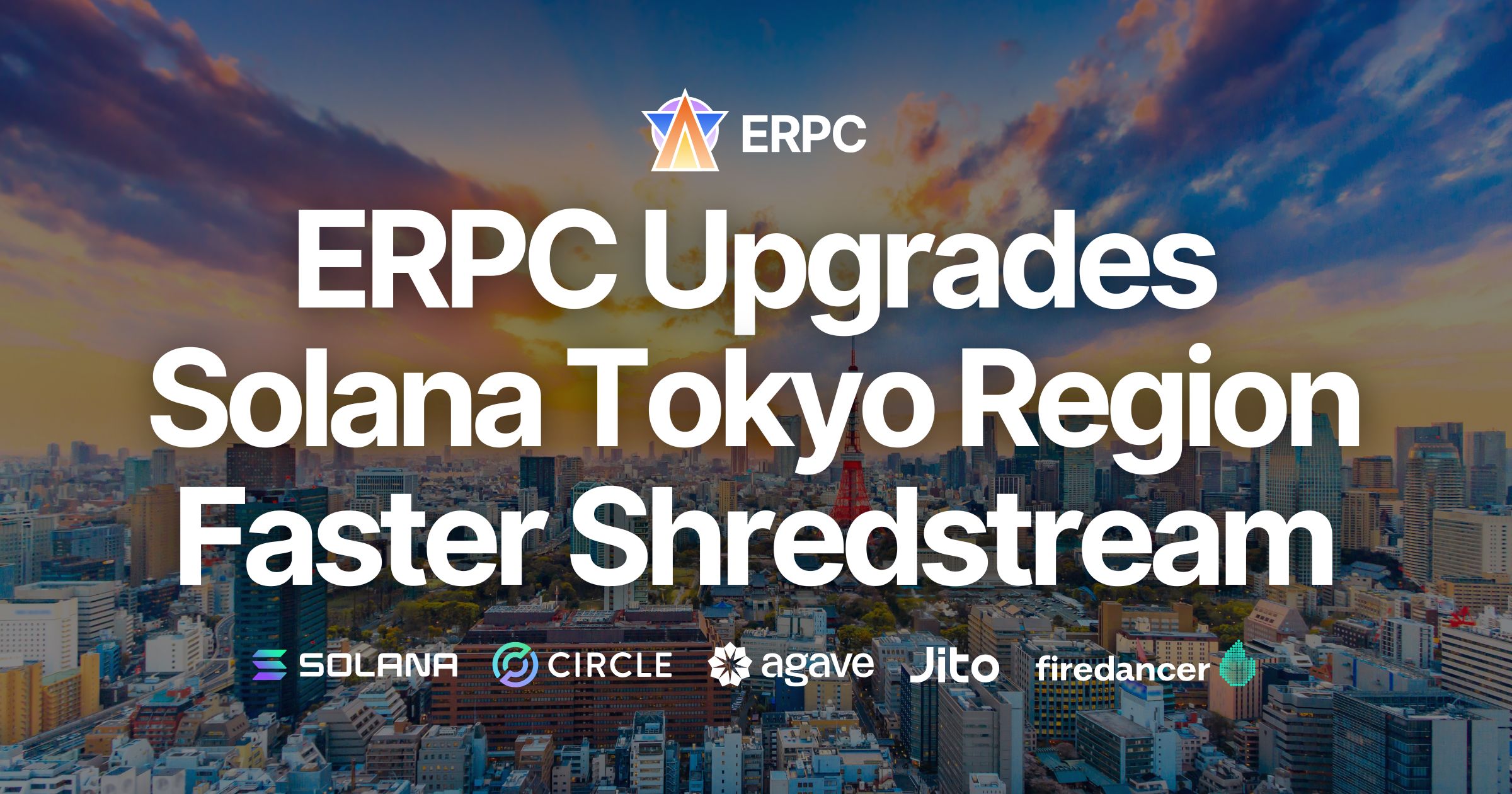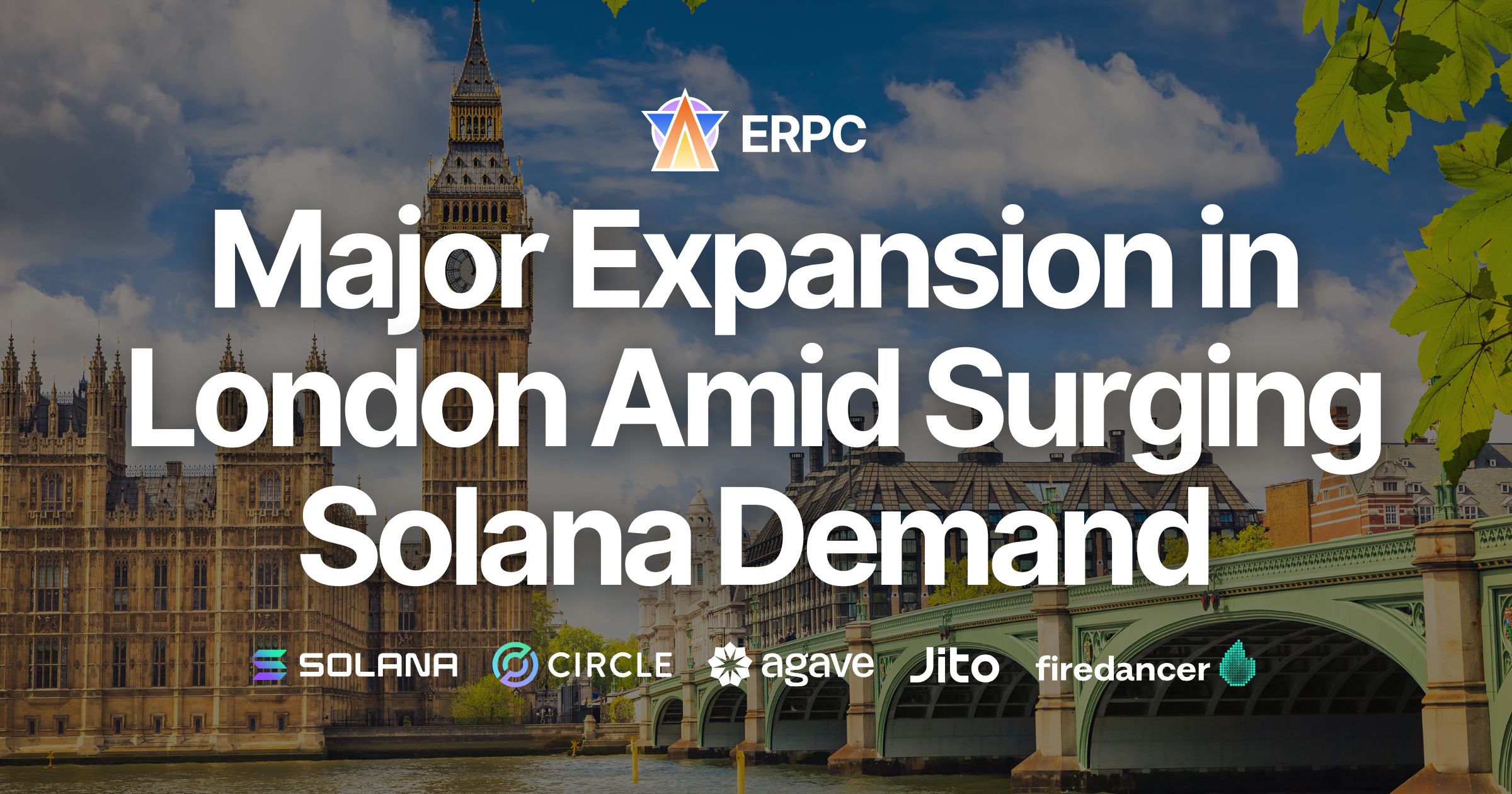ERPC Completely Removes Filter Restrictions on Solana Geyser gRPC Shared Endpoints
ERPC Completely Removes Filter Restrictions on Solana Geyser gRPC Shared Endpoints
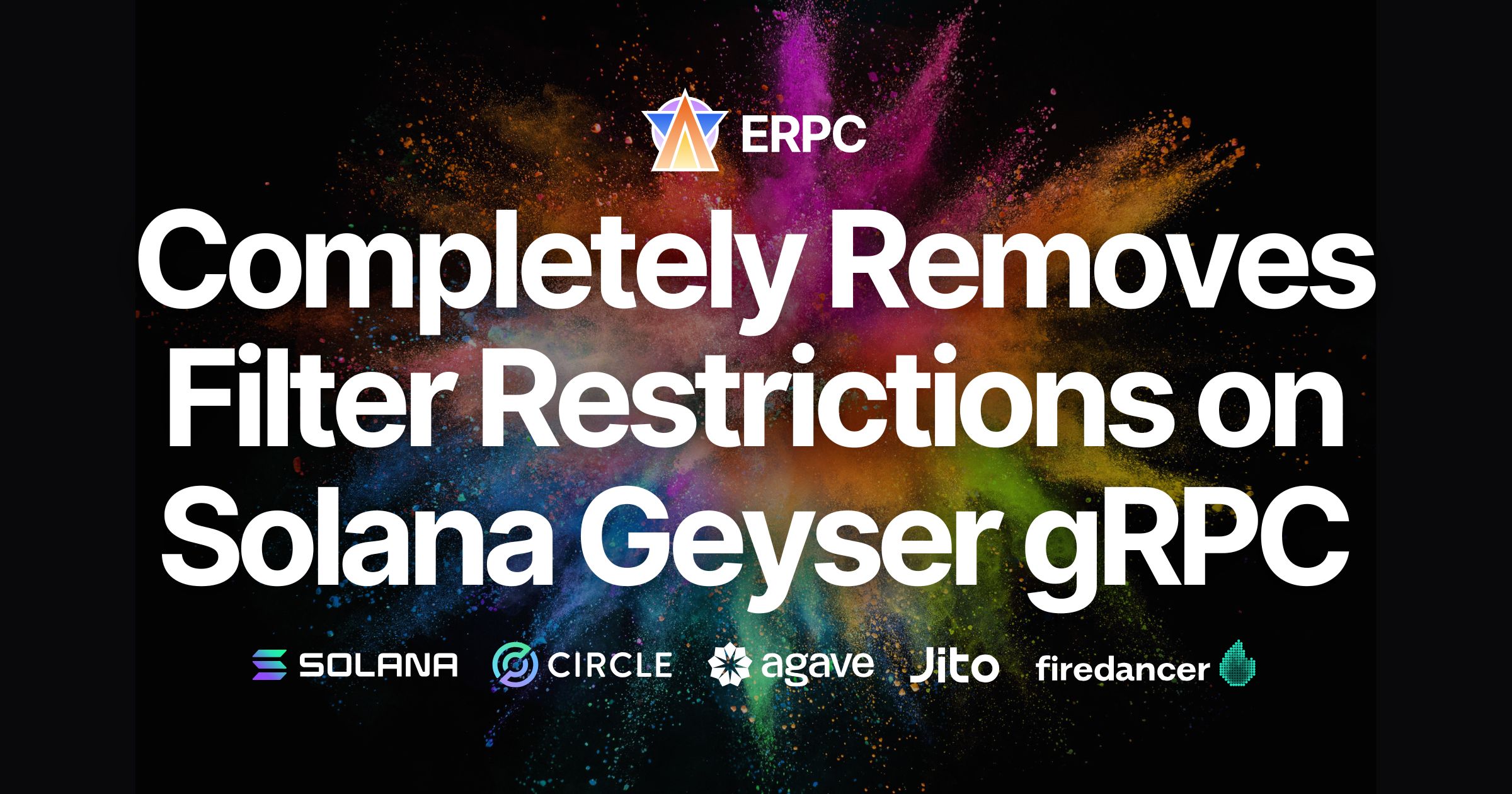
ELSOUL LABO B.V. (Headquarters: Amsterdam, Netherlands; CEO: Fumitake Kawasaki) and Validators DAO, the operators of ERPC, have completely removed filter restrictions on Geyser gRPC shared endpoints. This change has already been applied across all regions, and with strengthened monitoring systems we will continue to provide a stable environment on an ongoing basis.
Background and Purpose
The filter restrictions previously in place were mainly operated as a countermeasure against system load. With strengthened monitoring systems and accumulated data, we have become able to more accurately identify access patterns linked to misuse.
Furthermore, by introducing a stricter and higher-performance nftable auto-update logic, we implemented an update that minimizes load caused by attacks. By reducing attack risks and abusive use, we confirmed that the overall system load can be significantly alleviated.
At the same time, we optimized the free trial to one day. This reduces the likelihood of abusive use while still providing legitimate users with sufficient time for comparison and testing. These improvements have enabled stable resource allocation aligned with practical usage requirements.
As a result, we determined that we can stably secure effective resources for customers who choose ERPC, and decided to completely remove the filter restrictions.
Improvements and Effects
With the complete removal of filter restrictions, developers and operators can now use gRPC streams without worrying about quantity limitations. Previously, additional implementations or operational workarounds were required to adapt to the restrictions, placing a burden on development and testing workflows. With these inefficiencies eliminated, improvements can be expected in development speed, verification efficiency, and operational cost reduction.
Meanwhile, our monitoring and analysis infrastructure has been enhanced, maintaining a system that quickly detects and responds to abnormal access or misuse. ERPC will continue to prioritize user experience while maintaining both stability and security.
Pricing and Bundle Plan (Why Bundle is Effective)
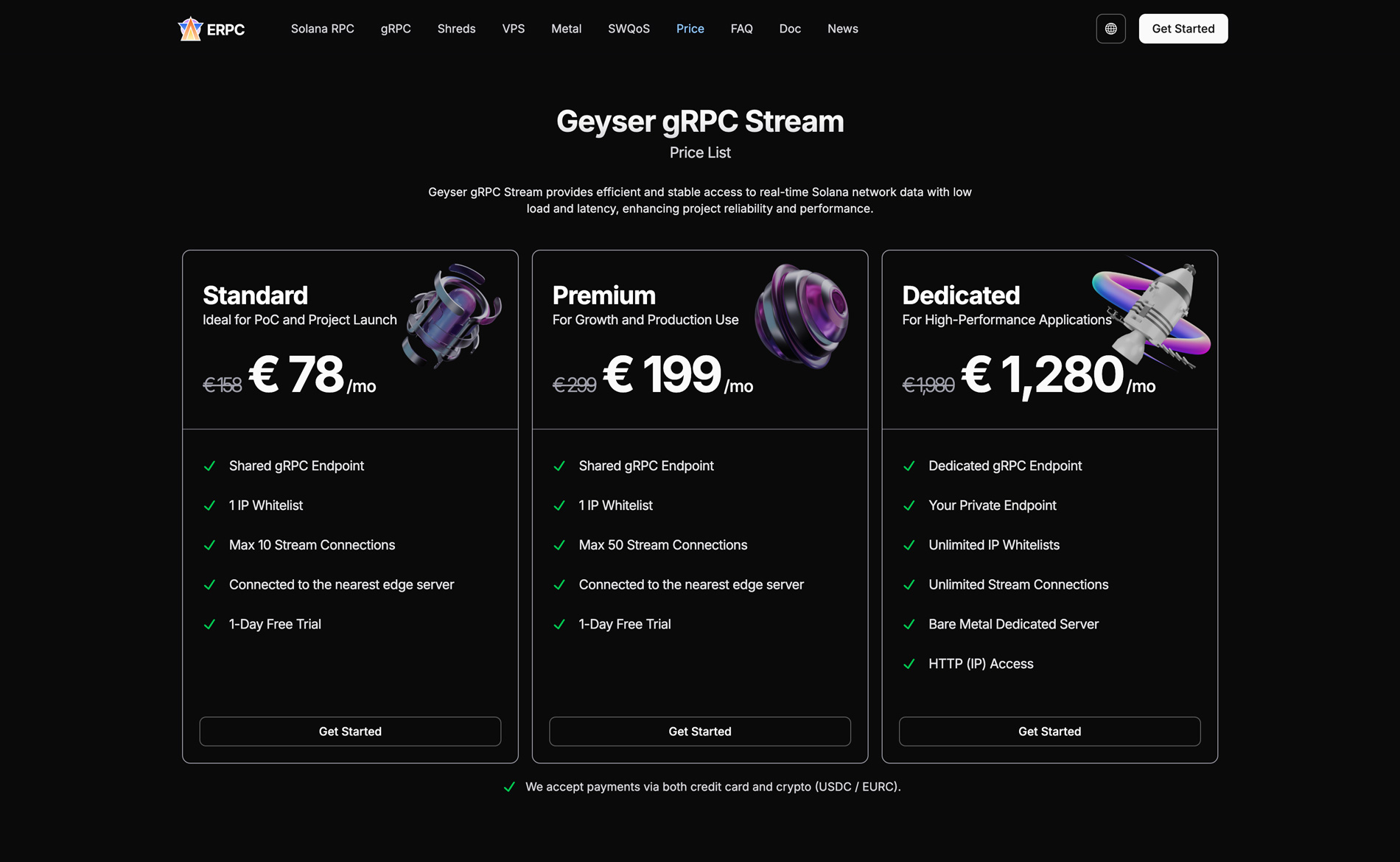
There are no changes to pricing, specifications, authentication methods, or connection limits with this update. You can continue to use gRPC with your existing connection settings.
Even if you have already tried the free trial, customers whose requirements were not met due to previous filter restrictions will now be offered a new one-day free trial. Please create a support ticket if you wish to request this. For usage or inquiries, please create a ticket via the Validators DAO official Discord.
Validators DAO Official Discord: https://discord.gg/C7ZQSrCkYR
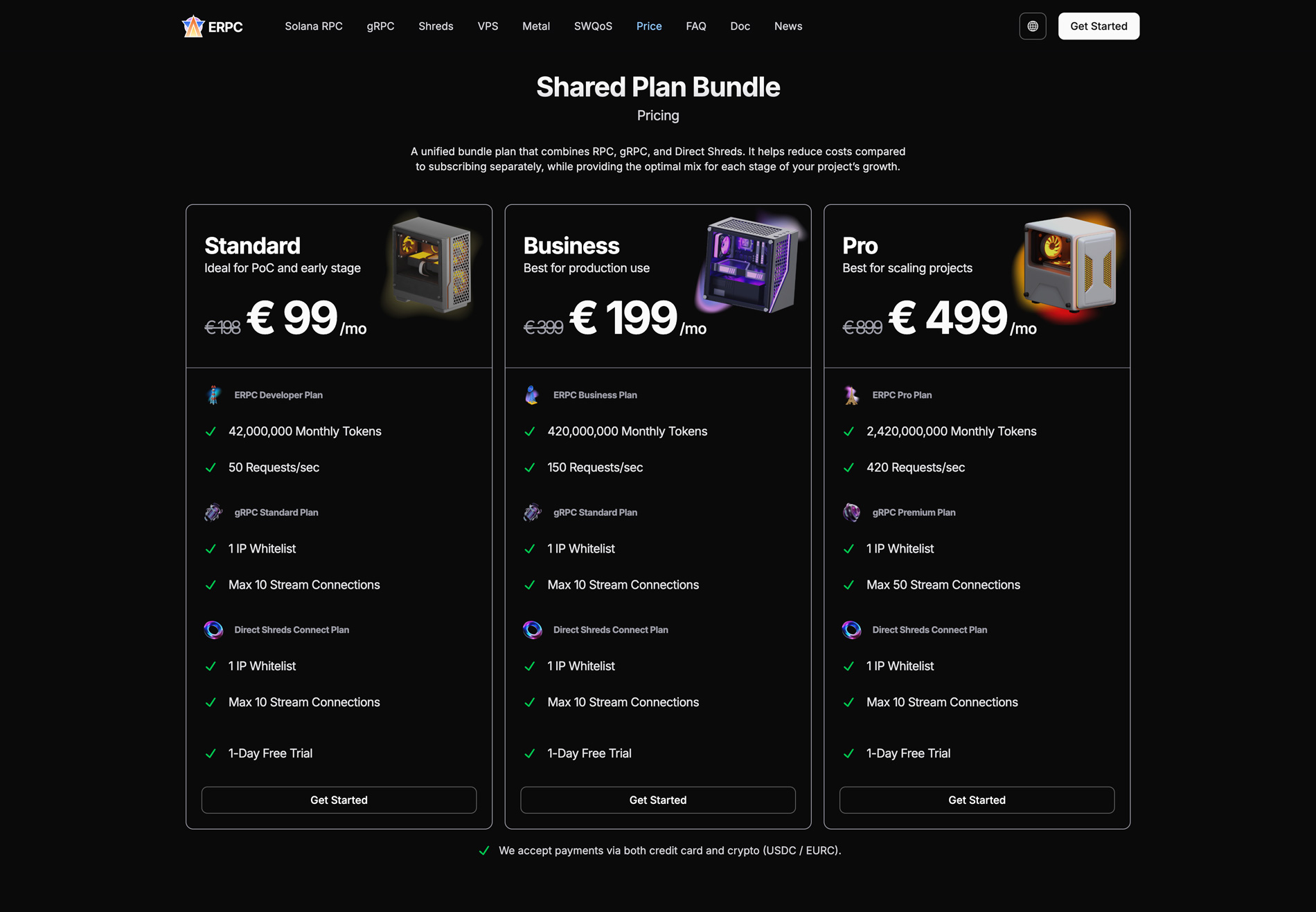
The Bundle plan is a package that allows you to use RPC, gRPC, and Shreds together. Shreds delivers data one step earlier than what is distributed via Geyser gRPC, making it suitable for the fastest possible detection of potential events. Geyser gRPC, on the other hand, provides corrected and more accurate information, making it suitable for final confirmation.
By using the Bundle plan, you can implement a workflow where Shreds quickly detects possibilities and gRPC confirms them, all under the same account and operation. This shortens the time between detection and confirmation, reduces false positives and missed data, and optimizes operational costs.
Many developers have already adopted this combined use of Shreds and gRPC, evaluating it as a practical choice for balancing verification and production. The Bundle plan is a cost-effective option for projects that need to balance speed and reliability.
Commitment to Global Quality
Blockchain applications are affected not only by performance in production environments but also by iteration speed during development. Even if the production environment is located in Europe, using distant servers during development increases round trips for builds, debugging, reloads, and editor operations, which undermines focus and adds stress. Frequent network disconnections can also delay the entire workflow, making it difficult to maintain development agility and slowing down innovation.
To address this, we continue to deploy zero-distance edge locations across continents. As the number of sites increases, our private network expands, and by connecting them via the shortest routes, overall latency decreases. By advancing both regional optimization and global network optimization simultaneously, we provide a foundation that consistently supports development through production around the world.
Challenges ERPC Solves
- Transaction failures and latency fluctuations common in general RPC environments
- Performance throttling imposed by many infrastructure providers
- Significant impact of network distance on communication quality
- Difficulty for small projects to access high-quality infrastructure
We faced the challenge of lacking easy access to high-performance Solana development environments during the development of Epics DAO, an open-source Solana NFT card game project. To overcome this, we built our own platform, and based on this expertise, we now provide ERPC and SLV.
Applications involving finance are particularly mission-critical, where delays or errors directly affect user experience. With the overlapping structure of distributed validators and Web3-specific mechanisms, understanding the whole picture of Solana development has been difficult, and many projects have struggled with delays and instability.
We are committed to providing the high-performance infrastructure required, contributing to improving both development and user experience across the Solana ecosystem. ERPC, along with open-source initiatives such as SLV, is positioned as part of this effort.
- ERPC Official Website: https://erpc.global/en
- SLV Official Website: https://slv.dev/en
- Epics DAO Official Website: https://epics.dev/en
- Validators DAO Official Discord: https://discord.gg/C7ZQSrCkYR


